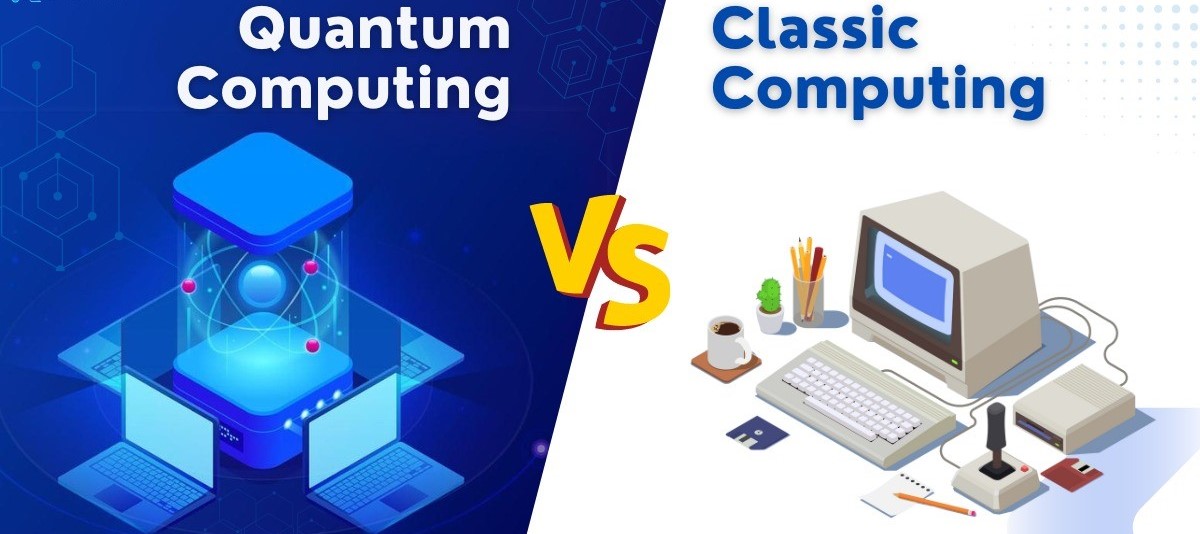Quantum Computing vs. Classical Computing: Key Differences
Quantum and classical computing operate on fundamentally different principles, leading to distinct strengths and applications. Below is a detailed comparison of these two paradigms.
1. Data Units
- Classical Computing: Uses bits as the smallest unit of data. A bit can represent either 0 or 1.
- Quantum Computing: Uses qubits, which can exist in a superposition of both 0 and 1 simultaneously, enabling exponentially more processing power.
2. Processing Power
- Classical Computing: Performs operations linearly, solving one task or running one calculation at a time.
- Quantum Computing: Can solve many calculations in parallel, thanks to superposition and entanglement—leading to faster problem-solving for certain tasks.
3. Speed and Efficiency
- Classical Computing: Works well for everyday applications like word processing, web browsing, and databases.
- Quantum Computing: Exponentially faster for specific applications such as factoring large numbers, complex simulations, and optimization problems.
4. Error Rates and Stability
- Classical Computing: Has low error rates and is reliable for day-to-day tasks.
- Quantum Computing: Prone to errors due to qubit instability (decoherence) and requires quantum error correction to ensure accurate results.
5. Applications
- Classical Computing:
- Web browsing, office software, and general-purpose computing.
- Video editing, gaming, and data storage.
- Running AI models (though with limited efficiency for highly complex tasks).
- Quantum Computing:
- Cryptography: Breaking or creating secure encryption.
- Drug discovery: Simulating molecular interactions and protein folding.
- Optimization problems: Improving logistics, supply chains, and traffic management.
- AI and Machine Learning: Accelerating training on complex models.
6. Scalability
- Classical Computing: Easily scalable with advances in processors (e.g., multi-core CPUs, GPUs).
- Quantum Computing: Difficult to scale—building stable systems with many qubits is still a major challenge.
7. Cost and Complexity
- Classical Computing: Inexpensive and accessible, with widespread availability.
- Quantum Computing: Requires special environments like ultra-cold temperatures to maintain qubit stability, making it expensive and complex.
Comparison Table: Quantum vs. Classical Computing
| Aspect | Classical Computing | Quantum Computing |
|---|---|---|
| Unit of Data | Bit (0 or 1) | Qubit (0, 1, or both) |
| Processing Style | Linear (one operation at a time) | Parallel (multiple states at once) |
| Error Handling | Low error rates | Requires quantum error correction |
| Speed | Efficient for general tasks | Exponentially faster for specific tasks |
| Scalability | Easily scalable | Difficult to scale |
| Cost | Affordable and accessible | Expensive and complex |
| Applications | Everyday computing | Complex simulations, cryptography, AI |
When to Use Classical vs. Quantum Computing
- Classical Computing: Ideal for everyday tasks like word processing, email, video streaming, and web applications.
- Quantum Computing: Suited for specialized tasks such as molecular simulations, cryptography, AI optimization, and solving mathematical problems beyond the scope of classical computers.
Conclusion
While classical computers remain essential for daily operations, quantum computing opens new frontiers for solving problems that are infeasible with classical systems. However, quantum computing is still in its early stages, with researchers continuing to explore how to make it practical and scalable. In the future, both computing models will likely coexist, with quantum systems complementing classical computers for highly specialized tasks.






